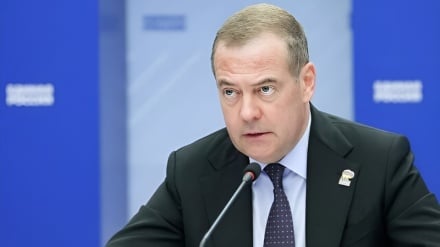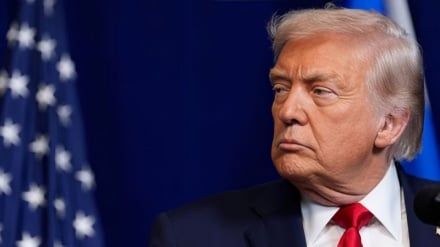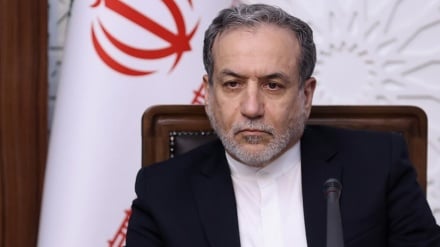US sanctions on Germany are self-defeating
Germany does lack natural gas resources. It is the world's largest natural gas importer, importing 92 percent of its gas from other countries. In the latest account, Germany imports 35 percent of its gas from Russia. The Nord Stream 2 is expected to be able to double the volume of gas Russia sends directly to Germany.
This would make Russia a substantially larger exporter to Germany than other nations are. And with Russia already being the supplier of 37 percent of Europe's natural gas, the pipeline does make Russia's energy cooperation with the European Union closer. The US seems to be concerned by this expanding relationship between Russia and European countries.
In this regard, we have prepared for you an article authored by staff writers of Iran's English language website of ‘Fars news agency’ under the heading: "US sanctions on Germany are self-defeating."
Germany and Russia have reacted angrily to sanctions approved by US President Donald Trump on a gas pipeline between the two countries.
The sanctions target firms building Nord Stream 2, an undersea pipeline that will allow Russia to increase gas exports to Germany. The US considers it a security risk. But Germany accused Washington of interfering in its internal affairs, while Russia and EU officials also criticized the sanctions.
US Congress voted through the measures as part of a defence bill recently and the legislation, which described the pipeline as a "tool of coercion", was signed off by Trump.
The almost $11bn Nord Stream 2 project has infuriated the US, with both Republican and Democratic lawmakers opposing it. The Trump administration claims the pipeline will tighten Russia's grip over Europe's energy supply and reduce its own share of the lucrative European market for American liquefied natural gas. Trump also claims the 1,225km pipeline, owned by Russia's state-owned gas company, Gazprom, could turn Germany into a "hostage of Russia."
Europe is united in its response. Spokesman for the European Union expressed the bloc's opposition to sanctions against "EU companies conducting legitimate business."
German Chancellor Angela Merkel stated that Germany is "opposed to extraterritorial sanctions." German Foreign Minister Heiko Mass equated the sanction to "interference in autonomous decisions taken in Europe" and claimed that "European energy policy is decided in Europe, not the US." Chancellor Merkel's spokeswoman said this act "constitute an interference in our internal affairs." Russia's foreign ministry accused the US of promoting ideology at the expense of global competition.
The US is justifying its actions in the name of security and independence. President Donald Trump has long accused Germany of being subdued by Russia because of Germany's reliance on Russian energy. He described the deal as turning Germany into Russia's "hostage." US claims a Russia-controlled Germany could tip the political inclination of the European continent to Russia's side.
Germany does lack natural gas resources. It is the world's largest natural gas importer, importing 92 percent of its gas from other countries. In the latest account, Germany imports 35 percent of its gas from Russia. The Nord Stream 2 is expected to be able to double the volume of gas Russia sends directly to Germany. This would make Russia a substantially larger exporter to Germany than other nations are. And with Russia already being the supplier of 37 percent of Europe's natural gas, the pipeline does make Russia's energy cooperation with the European Union closer. The US seems to be concerned by this expanding relationship between Russia and European countries.
However, this argument doesn't legitimize the sanctions. Natural gas only accounts for less than 24 percent of Germany's energy production in 2018. Renewable energy like wind and solar are rapidly overtaking other forms of energy production. According to Reuters, in 2018, over 40 percent of electricity was produced by green energy sources.
And Russia is rich in gas! It's just a fact. Free market decides that there is a supply-demand relationship. Given Germany's lack in gas and the proximity to Russia, it is more than natural for the two countries to conduct energy business. There is a theory that the sanctions are motivated by US' desire to enlarge its own energy exports to Europe. After the breakthrough in the shale gas technology, the United States has overtaken Russia and Saudi Arabia as the world's top energy producer.
However, US energy companies are still in the process of preparing for exports to Germany. According to US Secretary of Energy Dan Brouillette, these companies are trying to get the preparation done and start exporting by 2022, two years after the Nord Stream 2 is expected to come online. Delaying the project could earn the US energy more market space in Germany.
The US Congress was livid about this. Democrats and Republicans have been vocal in their opposition to Trump's decision. But, without the Executive Branch's cooperation, countering Russia is hard for Congress to achieve alone. The National Defense Authorization Act (NDAA) gives Congress the chance to make its strongest demand on foreign policy.
By sanctioning the pipeline, Congress not only prevents Russia from getting more profit from selling energy and contains the so called "Russian threat," but also gains a tool to leverage the United States into a stronger interfering position in West Asia and Europe.
The sanctioning of Nord Stream 2 doesn't happen without context. There could be lots of energy and strategic benefits for the United States by impeding this project. What's interesting is that this act not only hurts their purported adversaries, but also damages one of the most important US ally on the European continent. And a country that blatantly interferes in its allies' affairs and hurts their interests solely for its own benefits is self-defeating.
ME/MG


